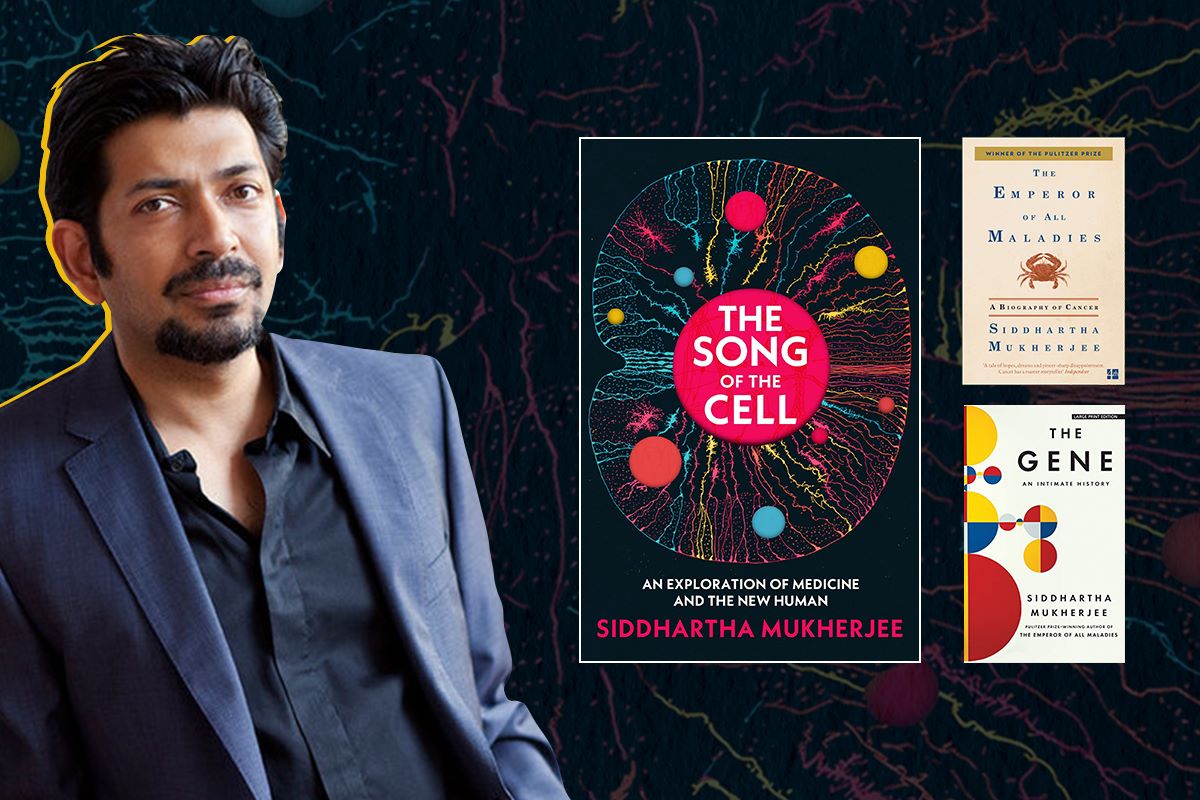
A fiction fan narrates his growing fascination with Siddhartha Mukherjee’s books on the human body and introduces the Pulitzer-winner’s latest in the context of his oeuvre. By Sahil Sihag
In 2011, Siddhartha Mukherjee won the Pulitzer Prize for General Non-Fiction for his book, The Emperor of All Maladies: A Biography of Cancer. It’s a book that continues to feature on curated lists of the best non-fiction books of all time. And for good reason. Scientific research papers can be overwhelmingly full of medical jargon—confusing for anyone not from that field—and hence, not very accessible. Mukherjee, an oncologist and professor of medicine at Columbia University, employed vivid metaphors and clear language to inform a wider audience about the disease that still defies our medical advancements and derails the lives of millions around the world—often with little notice. Since the time I read his award-winning book, I was hooked.
The Emperor of All Maladies was followed by The Gene: An Intimate History (2016), which deciphered the role genes play in human form and function. While delving into the unit of heredity, Mukherjee not only narrated the history of the gene, major scientific advancements like Darwin’s Theory of Evolution, and historical horrors like the Nazi eugenics of the 1940s, but also investigated a recurring pattern of mental illness in his own family line.
The Song of the Cell: An Exploration of Medicine and the New Human (2022) is his third and most recent book. Here, Mukherjee illuminates the origins of cells and our revolutionary new methods of controlling them. By citing cases of cell-based illnesses and the knowledge gained from them, Mukherjee crafts a humane book about the smallest unit of the body and its workings. He explores the end of life, what happens to cells when we inch closer to it, and any potential ways to delay it as he writes the fourth book in the series. Together, the four books will make up what Mukherjee calls the “life quartet”.
Through all of Mukherjee’s books, there is a recurring theme of evolution. His lucid prose, infused with suspense, makes complex science exciting. I never imagined a book on cancer to be my bedtime read, but Mukherjee’s non-fiction is more difficult to put down than some popular crime thrillers. I can’t wait to start reading The Song of the Cell, nor should you.
The Song of the Cell: An Exploration of Medicine and the New Human is now available at all Kunzum bookstores.
Related: Leeza Mangaldas’s ‘The Sex Book’ is a Necessary & Timely Sex-Education Tool in Today’s India

1 thought on “The Song of the Cell: A Critical Third Note in a Lyrical Life Quartet”